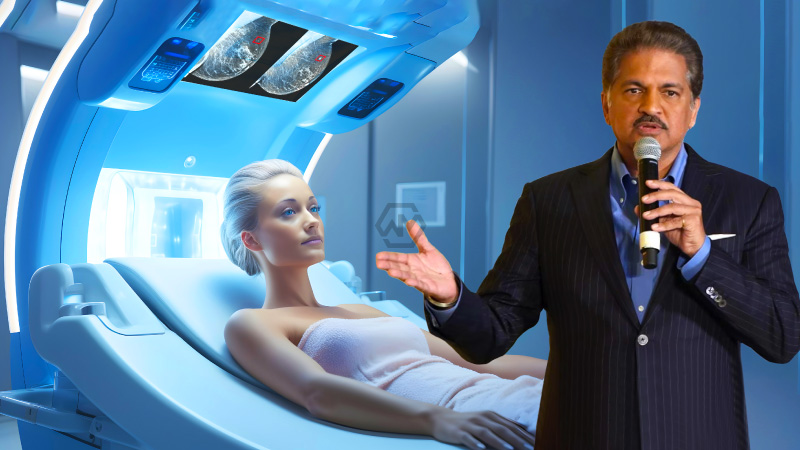- Mirai, a deep learning model, predicts breast cancer risk up to five years in advance.
- Anand Mahindra praised the model’s potential impact on early cancer detection.
- The technology aims to improve accuracy across demographics and enhance personalized care.
The Mirai AI model, developed by Jameel Clinic and MIT’s CSAIL, represents a major breakthrough in breast cancer detection. Capable of identifying precancerous changes years before conventional methods, Mirai enhances early diagnosis and potentially improves survival rates.
Anand Mahindra’s reaction to the AI’s capabilities underscores its transformative potential in healthcare. His comments reflect broader enthusiasm for how AI can revolutionize cancer screening processes, providing more accurate and timely predictions.
Anand Mahindra Applauds AI’s Role in Advanced Breast Cancer Detection
Anand Mahindra’s reaction to the AI’s capabilities highlights its potential to revolutionize early cancer detection. His praise reflects a broader recognition of how AI can offer more precise and earlier risk assessments, potentially leading to better outcomes for patients.
The development of Mirai also addresses critical health disparities by providing consistent accuracy across different racial and ethnic groups. This inclusivity is crucial in ensuring that advancements in cancer detection benefit all individuals equally, particularly those facing higher risk.
Despite its promise, the technology faces challenges such as integrating additional non-image data and maintaining consistent performance across diverse mammography systems. Continued efforts are needed to address these issues and enhance the reliability and effectiveness of AI-driven cancer detection.
Mirai’s development represents a groundbreaking advancement in early breast cancer detection, offering significant potential for improved patient outcomes. While challenges remain, the model’s ability to provide accurate predictions and address health disparities marks a crucial step forward in personalized cancer care.
“If this is accurate, then AI is going to be of significantly more value to us than we imagined and much earlier than we had imagined.”



